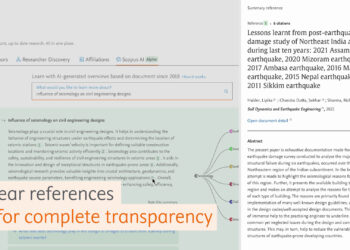
All the buzz recently about Massive Open Online Courses (MOOCs) has left many wondering whether they are here to stay and, if so, how they might affect higher education. Publishers wonder how their content can be used in such courses. Professors ponder how to best support students who may range from their own campus to the farthest reaches of the globe. Librarians seek ways to provide licensed content to affiliated students in the context of such online offerings.
If you are attending the SSP 35th Annual Meeting in San Francisco, you have the opportunity to ask questions of a panel of intrepid MOOC pioneers. We’ve got a Publisher, a Professor, a Librarian, and a Service Provider lined up and ready to share their wisdom. We really want this panel to be audience and community led, so we’d love to get your thoughts and questions for the panel to help shape their preparation.
Below is a very short and simple form you can use to submit a question (or more than one!), please send them in! Below that are the details on our illustrious panel.
The Panel:
Franny Lee, SIPX, Inc.
Franny Lee is Co-Founder and Vice President, University Relations and Product Development of SIPX. Originally a composer and jazz musician, Franny was drawn to the fields of copyright and digital communication by experiencing firsthand its effect on the music industry. She has worked on a variety of complex copyright issues for over 10 years. Franny is a lawyer in both the United States and Canada, and has litigated digital rights and internet questions in the entertainment, media and communications industries. Franny also clerked for the Copyright Board of Canada in copyright collective certification proceedings and orphan works applications, and consulted for the Board on research issues, policy initiatives and administration of copyright collecting societies.Franny holds a BFA from York University, a LLB / JD from Queen’s University, and a LLM in Law, Science & Technology from Stanford University. She served as Resident Fellow for CodeX (the Stanford Center for Legal Informatics), focusing on using technology to improve the copyright landscape and driving the research that led to the creation of SIPX, Inc.
Mimi Calter, Stanford University Libraries
Mimi manages the Stanford University Libraries’ facilities and business services departments, and also serves as a policy coordinator for the organization. In addition, she manages a variety of special projects, with a special emphasis on copyright issues. Example copyright projects include the Stanford Copyright Renewal Database, and managing the intellectual property rights for the works of William Saroyan. Within the Facilities department, her department manages both daily maintenance and capital construction projects.
Dan McFarland, Stanford University Libraries
Daniel A. McFarland is an Associate Professor of Education, Sociology, and Organizational Behavior at Stanford University, and is the director of Stanfords certificate program in Computational Social Science. He holds a Ph.D. in sociology from the University of Chicago and has published widely on organizational behavior in sociology’s top journals. Dan has taught courses in organizational behavior and social network analysis at Stanford for over a decade and received a 2006 award for student advising in the Graduate School of Education.
Laura Leichum, Georgetown University Press
Laura Leichum is the Intellectual Property Manager at Georgetown University Press. Her decade of experience in scholarly publishing encompasses the areas of digital publishing, rights, marketing, publicity, and sales. She is a member of the Association of American University Presses and serves on the AAUP Copyright Committee.


